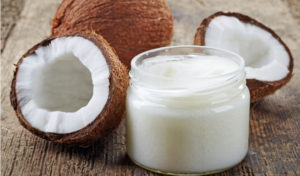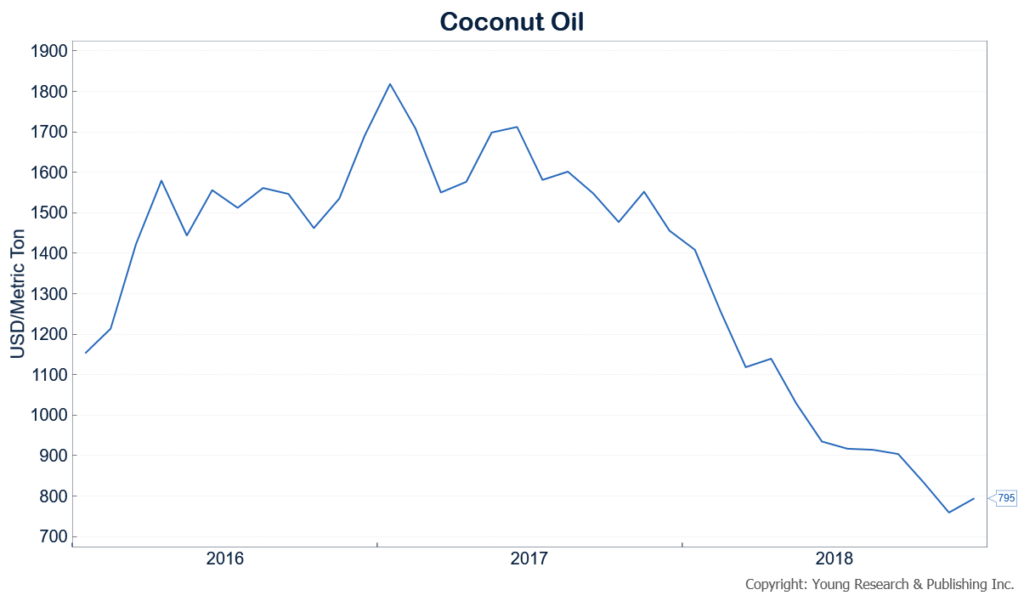
In 2018 crude oil prices fell 44.1% from peak to trough, a roller coaster ride for producers and investors for sure. But another oil price has also been plummeting. Coconut oil prices fell 58.2% from a recent peak in January of 2017 to $759.66/metric ton (Philippines Bulk, CIF Rotterdam, Average of Period) in November of 2018.
Lucy Cramer, writing in The Wall Street Journal explains how some negative attention from doctors put downward pressure on coconut oil, which had been rapidly gaining popularity. She writes:
Consumption of virgin coconut oil—a pure form of the commodity that is extracted without heat or chemicals—increased from around 2012 as it grew in popularity as a health food and that pushed prices higher. People used it in beverages like smoothies and bulletproof coffees—where a tablespoon of oil is added to hot coffee—and consumed it in ice cream, on toast and in baked goods.
After a powerful typhoon decimated scores of coconut trees in the Philippines—one of the world’s biggest producers of the crop—more plantations sprung up in the country and elsewhere as farmers tried to take advantage of greater demand.
But in June 2017, the American Heart Association raised fresh questions about coconut oil’s benefits. It said the oil is 82% saturated fat, a higher level than what is found in butter and beef fat. The association also said coconut oil’s saturated fat raises low-density lipoproteins—also known as bad cholesterol—in people consuming it. It recommended that saturated fat should make up less than 10% of a person’s average daily calories.
At present, coconut oil makes up just 2% of all the vegetable oil consumed around the world. Demand has peaked, said Dorab Mistry, a vegetable oil analyst and director at Godrej International, adding that the market for exotic oils “tends to move with whatever has captured the imagination of discerning consumers.” He said avocado oil is now favored by people for its purported health benefits.
Read more here.




